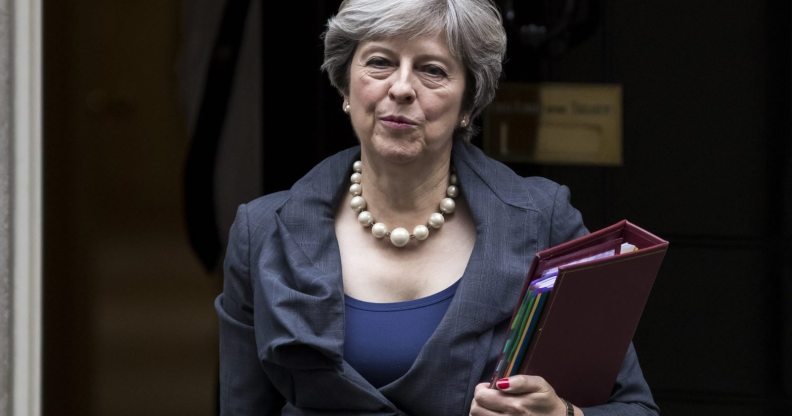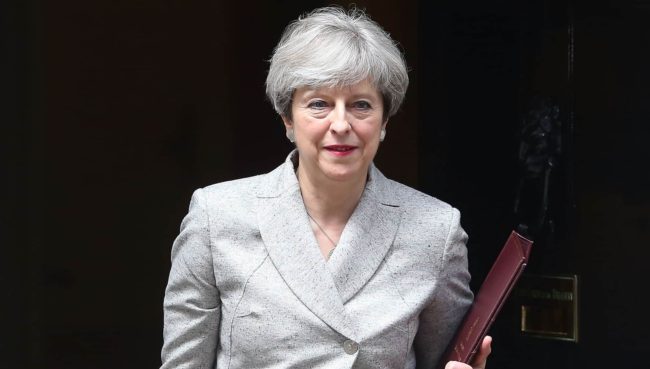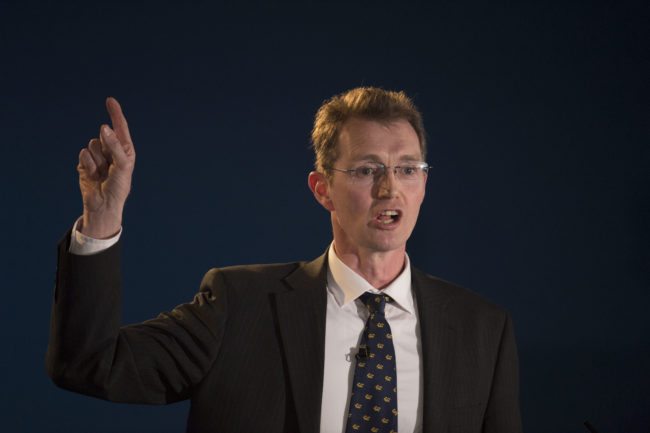Prime Minister Theresa May: I ‘recognise concerns’ about transgender children

(Photo by Dan Kitwood/Getty Images)
Prime Minister Theresa May has said she recognises “concerns” about transgender children, after a question from a Tory MP who opposes LGBT rights.
The Prime Minister was answering a question in Parliament from David Davies, the Conservative MP for Monmouth and a strong opponent of transgender rights.
Davies claimed earlier this year that transgender women “should be expected to use male facilities” unless they undergo a sterilising surgery, also referring to a trans woman as a “he/she”.
In his question to the PM, Davies claimed that “children as young as 12 are being labelled as transgender and prescribed potentially life-altering sex change drugs”, calling for the law to be “tightened to prevent this potential mistreatment of vulnerable young people”.
A number of Conservative MPs loudly cheered his question.

In her response, the Prime Minister pointed out that it is incorrect to suggest that children aged 12 are being given “sex change drugs”. Hormone treatment is not routinely offered to transgender children on the NHS until age 16.
The PM said: “My honourable friend raises what is a very sensitive issue.
“As he will be aware, obviously health is a devolved matter in Wales. In England the NHS has very strict guidelines regarding the prescriptions of these kinds of medications to young people.
“They can only be prescribed by a specialist team after a careful assessment of the individual, and generally only for those patients who are 15 or older.
“But I recognise the concern that my honourable friend has raised.”
Also this week, Davies submitted a number of Parliamentary questions to Ministers demanding to know “how many gender recognition certificates have been granted to transgender women who posses male genitalia”
In a newspaper column earlier this year Mr Davies said: “I suspect it will be impossible to express even the slightest concern about this without being accused of a host of ‘isms’ – but I am going to try.”

(Photo by Matthew Horwood/Getty Images)
He added: “We cannot consider the rights of transgender people without considering the rights of others.
“If a man decides to register him/herself as a woman, should he/she have the right to use women’s toilets, changing rooms, hospital wards, etc.? This would clearly have an impact on the rights of women using those facilities.
“Some might say I am on the ‘wrong side of history’ and ‘bigoted’. But I would maintain that anyone in possession of male genitalia should be expected to use male facilities regardless of what gender they feel they are.”
Mr Davies is no stranger to ‘isms’, having previously described same-sex marriage as “barking mad” and suggested most parents would prefer their children “not to be gay”.
Justifying his opposition to equal marriage, Davies had said: “I think most parents would prefer their children not to be gay, knowing most parents want grandchildren if nothing else.”
He later dismissed accusations that he is a homophobe by citing his participation in an amateur boxing match against a gay fighter.
Mr Davies said: “Once fought gay boxer. Respect & like.trained with after bout so not bigoted. actvists calm down- listen to other views.”
He has also claimed that LGBT-inclusive sex education might encourage children to have gay sex.
In an interview the MP said: “I suppose, at a certain level, I see heterosexual sex as being – and it’s probably the wrong word to use – but the norm. I think it’s reasonable to say that the vast majority of people are not gay.”
“I just worry if children are going to be taught that [heterosexuality] isn’t necessarily the norm, and that you can carry on doing all sorts of other things, are we going to have a situation where the teacher’s saying, ‘Right, this is straight sex, this is gay sex, feel free to choose, it’s perfectly normal to want to do both. And you know, why not try both out?’ I mean, are we going to have that?”
In the same interview the MP had also recounted, unsolicited, the story of a friend who had come out as gay before getting married to a woman, describing their sexuality as a “bit of a funny phase”.

